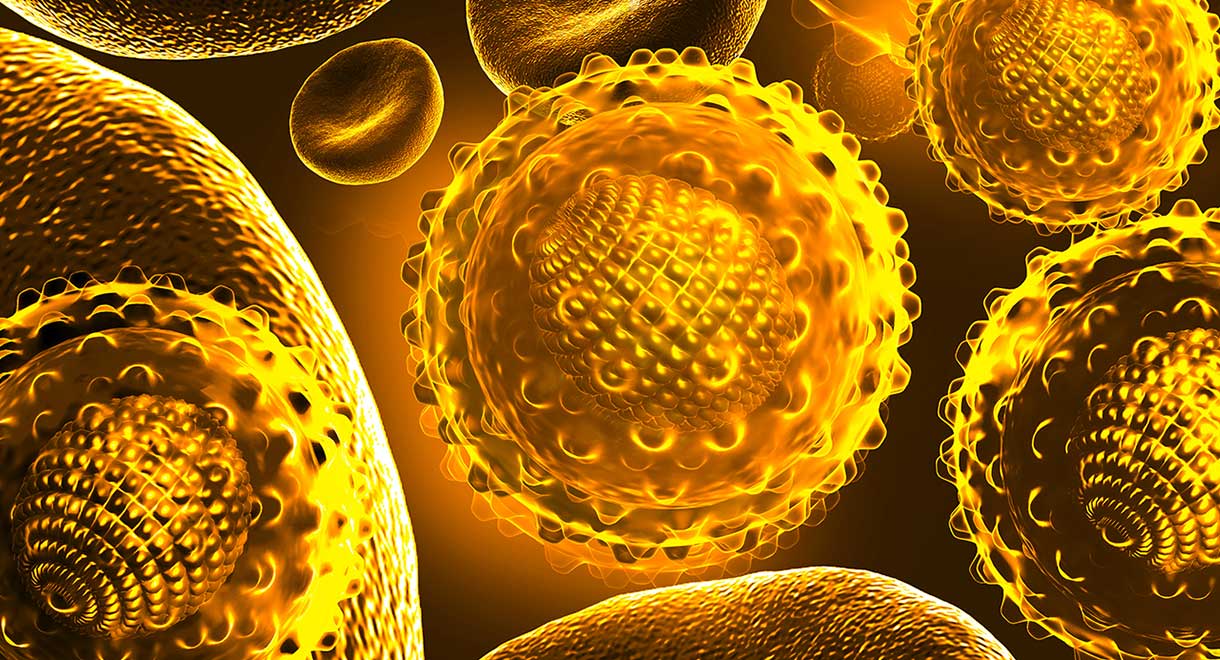Autoimmune Hepatitis
Autoimmune hepatitis (AH) is a chronic disease where there is continuing inflammation and damage to liver cells, which can lead to death of liver cells and progress to scarring of the liver (cirrhosis). The disease is caused by the immune system which attacks the patient’s own liver cells and tissues. The diagnostic term autoimmune hepatitis was selected to replace previous terms such as autoimmune liver disease and chronic active hepatitis.
Autoimmune hepatitis can occur in males and females of all ages, including children. AH may also be triggered by certain viral infections, vaccines, toxic chemicals and antibiotic drugs such as tetracyclines. AH is often associated with other autoimmune diseases such as ulcerative colitis or lupus etc.
Tests for autoimmune hepatitis (AH)
Blood tests often show auto-antibodies against liver proteins and increased immunoglobulin G (IgG) levels. Blood tests include serum autoantibodies, serum protein electrophoresis, and quantitative immunoglobulins. Urgent liver biopsy may help to confirm the diagnosis of acute autoimmune hepatitis.
Treatment of autoimmune hepatitis (AH)
Corticosteroids, either alone or in combination with the drug Azathioprine have been the standard drug treatment for many years.
These drugs suppress the immune system so that it cannot continue to attack the liver cells and they also reduce inflammation in the liver. The aim of drug treatment is to put the disease into a dormant or non-active state – this is called a remission. Another immune-suppressant drug that can be used is called Cyclosporine and it can be given for several months before corticosteroids and azathioprine are used.
In rapidly progressive acute onset AH, treatment with high-dose corticosteroids may save patients whose autoimmune hepatitis would have progressed to life threatening acute liver failure or cirrhosis. Other patients continue to deteriorate even if strong immuno-suppressant drugs are used, and if the patient has worsening acute liver failure, transfer to hospitals that perform liver transplantation is needed.
Outlook of autoimmune hepatitis
Autoimmune hepatitis (AH) is a dangerous disease and without any treatment, around 50% of patients with severe AH will die within 5 years and most patients will die within 10 years of disease onset. Treatment with immuno-suppressant drugs improves the chances for survival significantly. The 10-year life expectancies for drug treated patients with and without cirrhosis at disease onset are 89% and 90%, respectively. Even more encouraging, the life expectancy of patients in remission is similar to that of the general population.
Autoimmune hepatitis can be very severe in children and around 25% of children die or require liver transplantation as a result of the disease. Guidelines published in 2011 by the British Society of Gastroenterology recommend that children with AH should receive immuno-suppressive drugs to prevent or delay cirrhosis.
Spontaneous cure of AH with no drug treatment used can be seen in 13-20% of patients, regardless of the severity of the disease and this cannot be explained or predicted.
Liver cancer is less common in patients with cirrhosis caused by AH compared to patients who have cirrhosis caused by other diseases. However, ongoing vigilance and follow-up is required in patients with AH, as liver cancer can still occur at a higher rate.
Nutritional medicine for autoimmune hepatitis
It is important to follow a healthy diet and lifestyle and to keep alcohol ingestion to a minimal level. Avoid the use of long term or potent medications such as cholesterol lowering drugs, acetaminophen, antibiotics, antacid drugs, analgesics and arthritis medications, unless absolutely necessary. Try to use natural and harmless alternatives instead. Avoid over vaccination, as with all types of autoimmune disease, this can cause a flare up of the disease.
To support liver function when inflammation is present I recommend the following:
- Selenomune is the leading selenium formula and is vital in this condition; take one capsule daily.
- Vitamin D3, in a dose to keep your blood levels of vitamin D in the higher end of the normal range. You will need higher doses, such as 5000 IU daily, during winter or if you avoid the sun and work indoors.
- N-Acetyl Cysteine (NAC) 600 mg capsules, 2 capsules twice daily.
- Eliminate ALL gluten containing foods (wheat, rye, barley and oats) and dairy products and artificial sweeteners from the diet.
- Start to drink raw juices made freshly with a juice extracting machine – good things to juice are ginger, parsley, mint, basil, citrus (orange, lime, lemon, grapefruit), carrot, cabbage, apple and kale.
- Livatone Liver Tonic, 2 capsules twice daily.
The above statements have not been evaluated by the FDA and are not intended to diagnose, treat or cure any disease.


Leave A Comment